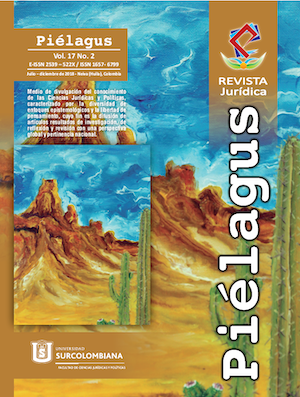Constitutional judge and interpretation of rules in Hungary
##plugins.themes.bootstrap3.article.main##
The article reflects on the constitutional interpretation in Hungary from a constitutional and normative perspective. This article starts from the conception of interpretation as an adaptation tool that ensures, the understanding and application of the right to specific cases, thereby ensuring institutional stability and legal certainty. In the case of constitutional interpretation, the text addresses the judicial interpretation and the broad activism of modern judges which make them protagonists of the current constitutional states. In the case of Hungary, the emergence of a jurisdiction that has taken an important place, because of its interpretative work and its contribution to the defence of the Political Charter, is highlighted. Finally, this work shows the great challenge of constitutionality decisions and the particularities that make it possible to compare the Hungarian case with other constitutional systems in the world.
Downloads
##plugins.themes.bootstrap3.article.details##
I. Attila, T. G., (2009). Túl a szövegen. Osiris, Budapest.
II. Dupré, C., (s.f.). “Importing Human Dignity from German Constitutional Case Law”. En: H. Gábor (Ed.). A megtalált Alkotmány? A magyar alapjogi bíráskodás első kilenc éve. (pp. 215-226). Indok, Budapest.
III. Godford, D. J., (1990). The Political Character of Constitutional Interpretation. Polity, 23(2), 262-266.
IV. Halmai, G., (1999). Az aktivizmus vége? A Sólyom-bíróság kilenc. Fundamentum, 3, (2), 5-27.
V. László, S., (2001). Az alkotmánybíráskodás kezdetei Magyarországon. Osiris, Budapest.
VI. Posner, R. A., (1990). The Problems of Jurisprudence. Harvard University Press, Cambridge.
VII. Rousseau, J. J., (1762). Du contrat social, ou Principes du droit politique. Amsterdan, Francia : Marc-Michel Rey.
VIII. Vörös, I., (2016). A történeti alkotmány az Alkotmánybíróság gyakorlatában. En: Jogtudományi Közlöny, 10, 491-508.
IX. Zoltán, B., (2000). “Alapjogi tesztek az Alkotmánybíróság gyakorlatában”. En: H. Gábor (Ed.). A megtalált Alkotmány? A magyar alapjogi bíráskodás első kilenc éve. (pp. 122-144). Indok, Budapest.
X. Zoltán, S., (2010). “A nemzetközi és külföldi bíróságok ítéleteinek felhasználása a magyar Alkotmánybíróság gyakorlatában 1999 és 2008 között”. En : Jog-Állam-Politika, 2010(2), 58-63.
REFERENCIAS JURISPRUDENCIALES
XI. Tribunal Constitucional de Hungría, sentencia n◦23/1990 (X. 31) del 31 de octubre de 1990.
XII. Tribunal Constitucional de Hungría, sentencia n◦11/1991 (III. 5) del 5 de marzo de 1991.
XIII. Tribunal Constitucional de Hungría, sentencia n◦14/1991 (IV. 20) del 20 de abril de 1991.
XIV. Tribunal Constitucional de Hungría, sentencia n◦30/1992 (V. 26) del 26 de mayo de 1992.
XV. Tribunal Constitucional de Hungría, sentencia n◦36/1992 (VI. 10) del 10 de junio de 1992.
XVI. Tribunal Constitucional de Hungría, sentencia n◦53/1993 (X. 13) del 13 de octubre de 1993.
XVII. Tribunal Constitucional de Hungría, sentencia n◦25/1999 (VII. 7) del 7 de julio de 1999.
XVII. Tribunal Constitucional de Hungría, sentencia n◦14/2000 (V. 12) del 12 de mayo de 2000.

















